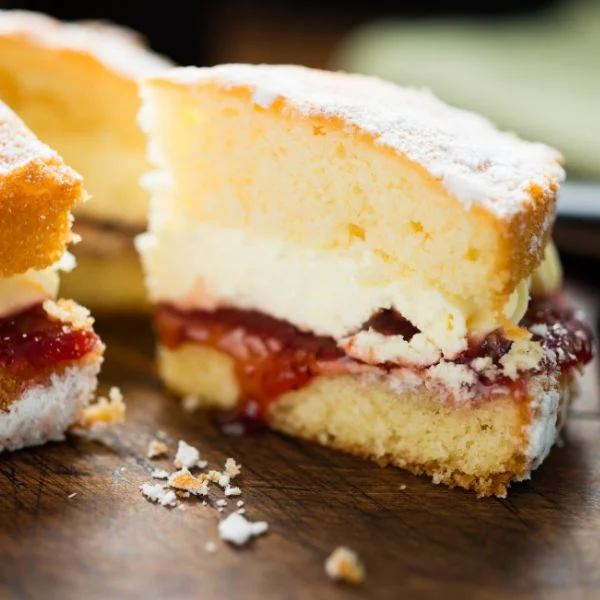When it comes to weight loss, people often wonder whether they can still enjoy their favorite treats while working towards their goals. One such treat that often raises questions is sponge cake.

Understanding Sponge Cake
- What is sponge cake?
Sponge cake is a light and airy type of cake that is popular in many countries around the world. It gets its name from its spongy texture, which is achieved through the unique baking technique and ingredients used.
- Ingredients and preparation
Sponge cake typically consists of eggs, sugar, flour, and sometimes a small amount of fat. The key to its light texture lies in the technique of beating the eggs and sugar together until they become fluffy and increase in volume.
The flour is then gently folded into the mixture, resulting in a delicate and tender cake.
- Nutritional profile of sponge cake
Sponge cake is relatively low in fat compared to other types of cakes. However, its nutritional composition can vary depending on the specific recipe and additional ingredients used. It is generally a good source of carbohydrates and contains some protein from the eggs.
Sponge Cake and Weight Loss
- Calorie content of sponge cake
While sponge cake may be lower in fat, it is important to consider its calorie content. On average, a slice of sponge cake (approximately 100 grams) can provide around 250-300 calories. This calorie count can vary depending on the size and recipe of the cake.
- Impact on weight loss goals
Including sponge cake in your weight loss journey requires mindful consumption. The calorie content of sponge cake means that it should be enjoyed in moderation and as part of a balanced diet. It is crucial to be mindful of portion sizes and consider the overall calorie intake for the day.
Moderation and Portion Control
To incorporate sponge cake into a weight loss plan, it is essential to practice moderation and portion control. Here are some tips:
- Enjoy a small slice of sponge cake as an occasional treat rather than indulging in large portions.
- Focus on savoring the taste and texture of the cake, rather than mindlessly consuming it.
- Pair the cake with healthier accompaniments such as fresh fruits or a dollop of low-fat yogurt to add nutritional value and increase satiety.
Healthier Alternatives
If you are looking for healthier alternatives to traditional sponge cake, consider the following options:
If you are looking for healthier alternatives to traditional sponge cake, consider the following options:
- Angel food cake: This type of cake is similar to sponge cake but is made without butter or oil. It is primarily composed of egg whites, sugar, and flour, resulting in a lighter and lower-fat dessert option.
- Flourless sponge cake: This variation eliminates the flour component, making it suitable for those following a gluten-free diet. It is typically made with a combination of eggs, sugar, and ground almonds or other nut flours.
- Fruit-based cakes: Opt for cakes that incorporate fresh fruits into the batter or as a topping. This adds natural sweetness, fiber, and essential nutrients, making the cake more nutritious overall.
By choosing these alternatives, you can enjoy the taste and texture of cake while reducing the calorie and fat content, thereby supporting your weight loss goals.
FAQs
Yes, sponge cake can be included in a weight loss diet if consumed in moderation and as part of a balanced eating plan.
It is recommended to enjoy sponge cake as an occasional treat rather than a daily indulgence, keeping in mind portion sizes and overall calorie intake.
Yes, there are low-calorie versions of sponge cake available, such as angel food cake or flourless sponge cake. These can be great alternatives for those watching their calorie intake.
You don’t have to completely avoid sponge cake. It’s about practicing moderation, portion control, and making mindful choices to fit it into your diet plan.
Fresh fruits, a dollop of low-fat yogurt, or a light dusting of powdered sugar are healthier toppings and accompaniments that can enhance the nutritional value of sponge cake.
Conclusion
In conclusion, sponge cake can be enjoyed as part of a balanced diet when trying to lose weight. While it is lower in fat compared to other cakes, it is important to be mindful of portion sizes and consider its calorie content.
Moderation and portion control are key to incorporating sponge cake into a weight loss plan.

